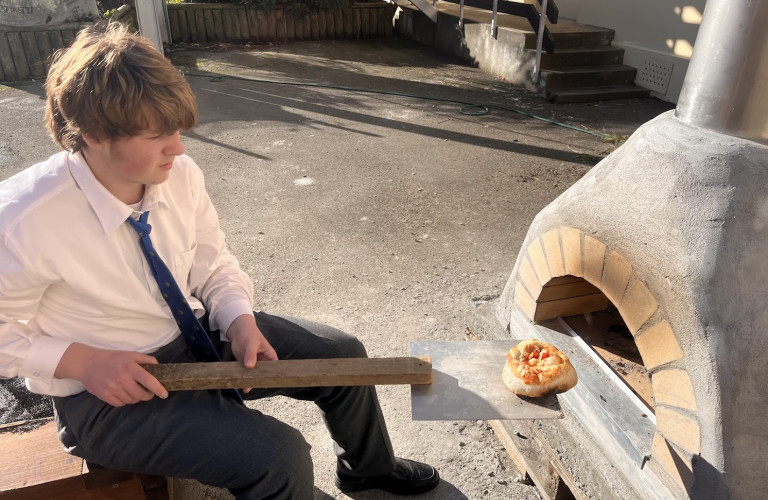Sustainability in action
There is something growing at Rongotai College, and it isn’t just the tomatoes, writes James Richardson.

For the past four years, Rongotai College has been on a journey to improve our positive impact on the planet and reduce our negative impact.
As a traditional boys’ secondary school it may seem a challenge to fit this extra-curricular work in between the rugby and football practice. However, a core group of students have sprouted a number of projects. Our successes - and failures - have demonstrated the value of “making a difference” and learning by doing to boys' education. They have also highlighted two qualities sometimes missing from boys' education: service and empathy.
Our action plan
In the hopes of embedding earth care (kaitiakitanga) into our school culture, our school community developed a sustainability action plan and have even had it approved at the board level.
The plan focuses on action to reduce waste, decreasing carbon emissions, and improving food security and food production knowledge.
It challenges teachers and students to both discuss sustainability and do something about it - a step sometimes missing in schools.
Thriving recycling programme
These broad objectives have seen us develop a thriving recycling programme, build a school garden, greenhouse and pizza oven - with the help of the parents’ association and materials technology classes. They have helped us improve our active transport options with refurbished bike sheds and bike lanes, in consultation with Wellington City Council.
We have also decreased our carbon footprint with a new woodchipper and tree planting programme with help from the council, Wellington Airport and the college’s Old Boys’ Association.
Importantly, what we’ve done is just as important as who was involved. In our case, our success is built on strong support from students, teachers, whānau, the community, and local businesses.
Making a difference
I’ve asked some of our students why they joined the group and what they learned. Ahmed Abi says he joined the Enviro Club as he believed that small actions could make a big difference. “It's a chance not only to learn about environmental issues but also take steps towards creating a more sustainable future”.
Another student, Angus Galloway, says he got involved because he wanted to help make a positive change in our school.
Guiding principles
To help other schools learn from the lessons we’ve learned, here are a few important guiding principles:
- Create SMART (Specific, Measurable, Achievable, Realistic and Time sensitive) goals so you know when you’ve succeeded at something.
- Sustainability needs to taste good! The garden is most active (and well-managed) when there is pizza waiting from our student-made pizza oven.
- Choose simple solutions to complex problems rather than complex solutions to simple problems.
- Some things are sacred and, despite the urgency of action required to adapt and mitigate against climate change, it is worth treading lightly around things like transport. Instead, model alternatives yourself – e.g. biking and walking to work - to show what is possible.
- Be kind to yourself - the challenge of “saving the world” is too big and hard to put on one student, teacher or school. Indeed it will take all of us doing our best, improving a little bit each year.
- Consider co-benefits. People do environmental work for a variety of reasons. We need not agree on all motivating factors - just what we should do about it.
- The work takes all kinds of people and is a journey for all of us.
Something is definitely growing at Rongotai College. The small efforts at a school scale can plant the seeds for positive growth and change in how we think and what we do in our school, cities and beyond.
*Dr James Richardson is a member of PPTA Te Wehengarua Climate Justice Committee
Last modified on Thursday, 5 June 2025 12:03
